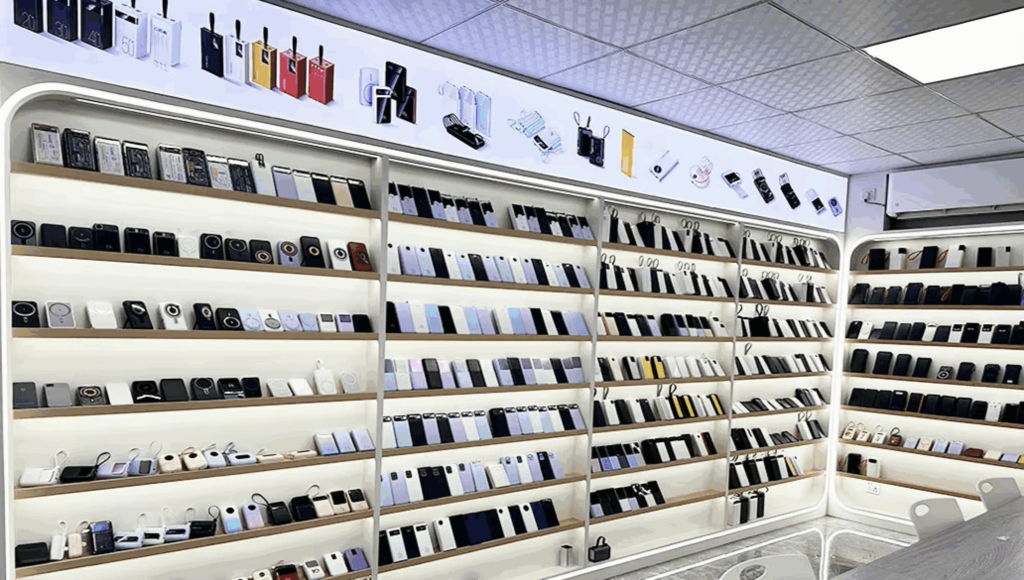When entering the wholesale market for MagSafe power banks, it’s crucial to understand the importance of quality standards and certification requirements. Not only do these certifications ensure that the products meet safety and regulatory standards, but they also boost your reputation and guarantee that your products will be accepted in various markets. This comprehensive guide will walk you through the process of meeting quality standards and obtaining the necessary certifications to ensure that your wholesale MagSafe power banks are reliable, safe, and compliant with global regulations.
Understanding Magnetic Power Banks
Before diving into certifications, it’s essential to understand what a MagSafe power bank is and why it matters in the market.
What is a Magnetic Power Bank?
A magnetic power bank is a portable charging device that uses a magnetic connection to securely attach to a compatible device, often smartphones like the iPhone. This type of power bank features:
Magnetic Attachment: This ensures a firm connection between the power bank and the device.
Wireless Charging: These power banks typically offer wireless charging, making them ideal for convenience and ease of use.
The increasing popularity of wireless charging technology, especially with Apple’s MagSafe technology, has made these power banks a must-have accessory for many smartphone users.
Why Quality Standards Matter for Wholesale Power Banks
As a wholesaler, offering high-quality products is vital for maintaining customer trust and satisfaction. Power banks that don’t meet quality standards are more likely to face issues like:
Poor Performance: Slow charging or overheating can result in customer complaints and product returns.
Safety Hazards: Malfunctioning power banks may pose fire or electrical risks.
Limited Market Reach: Without certifications, your product might be restricted from entering certain regions or online platforms.
By meeting the necessary quality standards and certifications, you ensure that your power banks are safe, effective, and market-ready.
Essential Certifications for Wholesale Magnetic Power Banks
For wholesale MagSafe power banks to meet global safety and quality standards, they must have specific certifications. These certifications are crucial in demonstrating that your products are compliant with regulatory requirements. Below are the most important certifications you need to obtain for your power banks:
1. CE Certification (Conformité Européene)
The CE mark is required for all products sold in the European Union (EU) and indicates that your product complies with EU safety, health, and environmental protection standards.
Why It’s Important:
Ensures that the product meets EU safety standards.
Required for sale in EU markets.
Facilitates easier access to European retailers and e-commerce platforms.
Steps to Obtain CE Certification:
Test Compliance: Conduct necessary testing to meet the EU’s Low Voltage Directive (LVD) and Electromagnetic Compatibility (EMC) Directive.
Prepare Documentation: Submit technical documentation, including product design and testing results.
Affix CE Mark: Once approved, affix the CE mark on your power bank.
2. FCC Certification (Federal Communications Commission)
The FCC certification is mandatory for selling electronic devices in the United States, particularly for wireless devices like MagSafe power banks, which emit radio frequency (RF) energy.
Why It’s Important:
Ensures compliance with U.S. safety and communication standards.
Prevents electromagnetic interference with other devices.
Steps to Obtain FCC Certification:
Testing for EMI: Conduct tests to ensure your product doesn’t emit harmful electromagnetic interference (EMI).
Apply for Approval: Submit your product for evaluation by a recognized certification body.
Labeling: Upon approval, your product will receive an FCC ID, and you’ll be required to label the device accordingly.
3. RoHS Certification (Restriction of Hazardous Substances)
The RoHS directive limits the use of certain hazardous materials in electronics, such as lead, mercury, and cadmium.
Why It’s Important:
Ensures your product complies with environmental safety standards.
Important for markets in the EU and other countries following similar regulations.
Steps to Obtain RoHS Certification:
Conduct Chemical Testing: Test the materials used in your power bank to ensure they meet RoHS requirements.
Maintain Records: Keep detailed records of all testing and materials used for traceability.
Issue Declaration of Conformity: Prepare a declaration confirming that your product complies with RoHS.
4. UN38.3 Certification for Lithium-Ion Batteries
Since most power banks use lithium-ion batteries, obtaining UN38.3 certification is crucial for ensuring that your power banks are safe for transport, particularly by air.
Why It’s Important:
Required for lithium-ion batteries to ensure they are safely transported.
Prevents safety hazards such as fire or leakage during shipping.
Steps to Obtain UN38.3 Certification:
Testing for Safety: Lithium-ion batteries undergo tests such as altitude simulation, vibration, shock, and overcharge testing.
Prepare Documentation: Collect test results and submit them to the appropriate regulatory body.
Obtain Certification: Upon successful testing, your product will be certified for safe transport.
5. Other Regional Certifications
In addition to CE, FCC, RoHS, and UN38.3 certifications, several other certifications may be required depending on the region you are selling in:
KC Certification (South Korea): Ensures compliance with safety and electromagnetic standards.
PSE Certification (Japan): Ensures power banks meet Japanese performance and safety standards.
Qi2 Certification: Specifically for wireless charging compatibility, ensuring your power bank works seamlessly with devices like iPhones that support MagSafe.
What Will Happen If Power Bank is Without Any Certification?
Selling power banks without the necessary certifications can lead to various issues:
1. Legal Consequences
Products that lack certifications may not comply with regional regulations, leading to fines, product recalls, and market access restrictions.
2. Safety Risks
A lack of proper testing can result in power banks that overheat, catch fire, or fail to charge properly. This could lead to serious safety hazards for customers.
3. Reputation Damage
Offering uncertified products can damage your brand’s reputation. Customers expect quality and reliability, and without certifications, your product may be seen as substandard.
4. Limited Market Access
Many major retailers and online platforms (e.g., Amazon) require certifications for selling electronics. Without them, your product may not be allowed to enter these channels.
5. Customer Dissatisfaction
If a product fails to meet performance expectations, you’ll face high return rates and negative customer reviews, which can harm your business in the long term.
6. Insurance and Liability Issues
Without certifications, your business may not be covered by insurance policies. If a defect leads to an incident, your company could be held liable for damages or injuries.
Can a Power Bank Ship by Air Without Certification?
Shipping power banks by air without certification is not allowed. Air transport regulations, particularly for lithium-ion batteries, require that power banks meet specific safety standards to prevent fire hazards. Here’s why UN38.3 certification is necessary for air shipments:
Regulatory Requirements:
Air carriers, such as FedEx, UPS, and major airlines, require that lithium-ion batteries have UN38.3 certification to ensure safety during transport.
Power banks without this certification could be delayed, confiscated, or incur fines during the shipping process.
Exceptions for Small Batteries:
For small batteries (≤100Wh), there may be some exceptions, but they still need to meet specific packaging and labeling requirements.
Importance of Certification:
The certification ensures that the batteries will withstand environmental changes like temperature and altitude during flight, reducing the risk of accidents.
Packaging and Shipping Considerations
In addition to certifications, packaging is crucial to ensure your power banks reach customers safely and efficiently.
Environmentally Friendly Packaging
Consider using sustainable materials for packaging, such as recyclable cardboard and biodegradable packing peanuts, to appeal to environmentally conscious customers.
Shipping Regulations
Ensure compliance with international shipping regulations, including IMDG Code for sea transport and IATA regulations for air transport.
Use proper labeling for lithium-ion batteries to meet hazardous material transportation requirements.
Working with Reliable Manufacturers
Finding the right manufacturer for your wholesale MagSafe power banks is essential for ensuring product quality and compliance with certifications. Look for manufacturers who:
Offer certifications (e.g., CE, FCC, RoHS, UN38.3).
Provide testing protocols to ensure product safety and performance.
Offer support for packaging and labeling according to shipping requirements.
Continuous Improvement and Adaptation to Market Needs
The market for MagSafe power banks is continuously evolving. To remain competitive:
Monitor Customer Feedback: Regularly review customer feedback to identify potential product improvements.
Adapt to Certification Changes: Keep up-to-date with changes in certification requirements to avoid regulatory issues.
Conclusion
Ensuring quality standards and obtaining the necessary certifications for your wholesale MagSafe power banks is essential for success. By meeting these requirements, you guarantee that your products are safe, reliable, and compliant with global standards. This will not only protect your business from potential legal and safety issues but also enhance your reputation and expand your market reach.
As you move forward, ensure that you partner with certified manufacturers, conduct thorough testing, and stay updated with regulatory changes to continue offering top-quality products to your customers.



